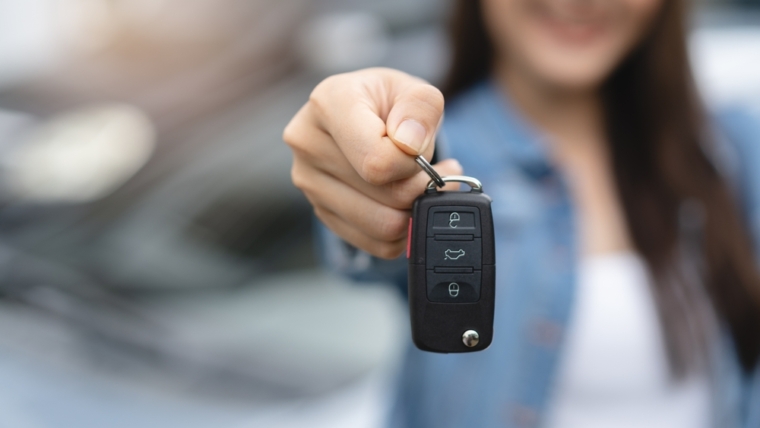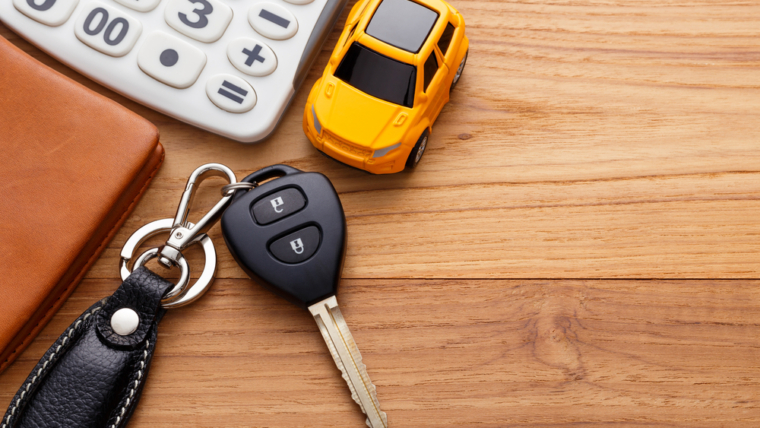If you’ve had your car repossessed, you’re probably looking to get it back as soon as possible. But could you get your vehicle back on the very same day?
The short answer: it’s not common to get your car back the same day it was repossessed. More often, it takes anywhere from 3 to 30 days to get your car back.
There are several reasons why your car may be repossessed, so there are also a few options for getting your car back. While repossession can be tough to recover from, it is possible to get your finances back on track and secure a reliable car with payments that work for you.
What Happens When a Car is Repossessed?
You were notified by your lender that you are at risk of repossession. If your car does get repossessed, what actually happens to it?
When your car is picked up, it is transported to a storage facility. Here, the car will be prepped for sale at an auction. If you’re unable to get your vehicle back, it will be sold. Any personal property in your car will be removed and stored, although the repossession company may charge you a storing fee, or retrieval fee to get it back.
Within 48 hours of the repossession, you should hear from the repo company and the lender. They will provide contact information for themselves and your lender, a list of the items removed from the car, instructions for getting your property back, and a notice of intent(NOI) in which the lender will provide the clauses to redeem your vehicle if at all possible. Make sure you claim your property within 60 days of the repossession, or the repo company may sell or throw away your belongings.
To prevent your car from being sold, you’ll need to adhere to the lenders NOI and/or discuss your options and see if a mutual agreement can be reached. The routes available to you may vary depending on the reason for the repossession.
Causes of Repossession
Before your car is repossessed, you should have received correspondence from your lender. Your notice will inform you that you’re at risk of repossession and tell you what you have to do to prevent having your vehicle towed. While this notice is a courtesy, a formal warning or notice is not mandatory for the finance company to provide. As soon as you breach the contract you signed for your auto loan, the lender has every right to repossess their collateral.
One of the most common causes of repossession is loan default. If you miss car payments and are unable to keep up with what you owe, your lender will take the car back and try to make up their lost cash. Sometimes, just one missed payment can be enough for your lender to reclaim the vehicle.
Cars can also be repossessed if the owner has had a lapse in car insurance coverage. Talk to your lender to get the details straight and learn what you can do to get your car back. It may be as simple as providing proof of your current coverage. In other circumstances, there may be additional requirements.
Additionally a vehicle can be repossessed if it is involved in any type of crime, or used commercially ex. Uber, Lyft, rideshare, etc. Commerical use is against many lenders policies since this type of work devalues the vehicles so rapidly.
If you think you have wrongfully had your car repossessed, contact your nearest Department of Motor Vehicles (DMV). The staff there can help you dispute the repossession or direct you to your next point of contact.
How to Get Your Car Back After Repossession
There are a few ways you can get your vehicle back after it’s been repossessed. But there’s one thing that all of these methods have in common: you’ll need some cash.
If you happen to have access to a fair-sized chunk of cash, you can redeem your auto loan. You can pay the car’s entire loan balance at once, along with any fees that may have been issued during the repossession (like storage, tow fees). When you pay, you’ll gain full ownership of the vehicle. This option isn’t the first choice for most borrowers since it involves having a lot of cash on hand.
You also have the option to reinstate your auto loan. To reinstate your loan, you normally have to make up any missed payments and agree to keep paying your regular loan payments. While you won’t need as much cash as you would by redeeming the loan, you’ll still need a bit of money to get caught up on your payments. Ask your lender if you can renegotiate your payment terms once you’re up to date on what you owe.
Finally, you can purchase your vehicle once the lender takes it to a fair market place. Per the retail sales contract, the lender must take the repossessed vehicle to a fair market place such as a dealer, or auction to attempt to sell the vehicle in a fair manner to cover the deficient balance of the loan. You have the right to know when and where the vehicle will be sold, so ask your lender (if they don’t provide this information on their own). If you win the auction or agree on a price at the dealership, you will still be responsible for the remaining loan balance. If you lose the auction or it is bought by someone else at the dealership, the proceeds from the sale will be applied to the loan balance. However, if there’s still a balance left on the loan, you’ll be responsible for the remaining balance, while if there is excess proceeds from the sale that exceed the loan amount, you are actually entitled to that residual amount.
Life After Repossession
Having your car repossessed gives you a chance to consider your finances and make some changes. Think about why your car was repossessed in the first place. If the payments were unaffordable, ask yourself whether you’ll be able to make them once you get your car back. If not, you may consider letting the vehicle go and finding a less expensive transportation option.
Regardless of whether you get your car back, you will have a repossession on your credit report, which can impact your score. The repossession will show up on credit reports even if you reinstate your loan.
If you can’t get your car back and need to look for another vehicle, your best option is to visit fafinancing.net. Traditional lenders won’t approve you if you’ve had a repossession in the last year, but FA Financing has ways around this, and lenders that can make exceptions on the right terms. As you’re looking toward the future, take steps to make sure you don’t face repossession again. If you know that you will soon have trouble making your car payments, talk to your lender immediately to make arrangements. Make your payments on time each month, and you will steadily see your credit score begin to rise.
Working with FA Financing
Facing repossession is never easy, but the FA Financing team is here to help you get back on track. We work with an extensive network of lenders that cater specifically to borrowers with repossessions on their records. Our team will help you tell your side of the story, highlighting the positive aspects of your loan application and helping you secure the best loan terms available.
We also help clients who have multiple auto loans, recent bankruptcies, trouble proving income, and more. Our team has more than 20 years of experience in subprime auto lending, serving residents of San Diego and surrounding areas. If you’re struggling to secure financing for a vehicle, reach out to FA Financing today to learn how we can help.


